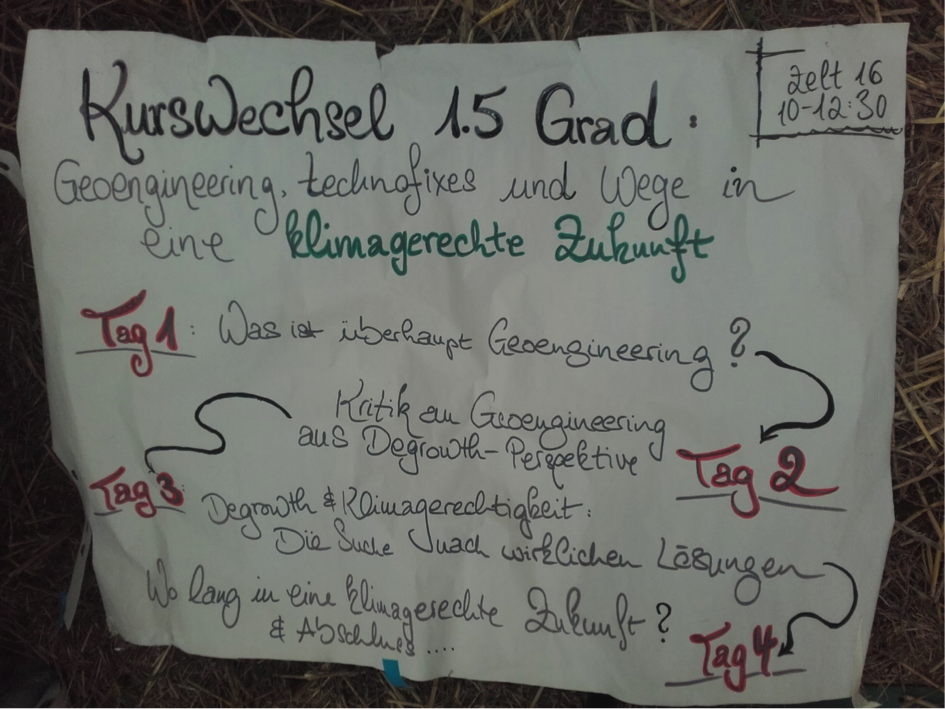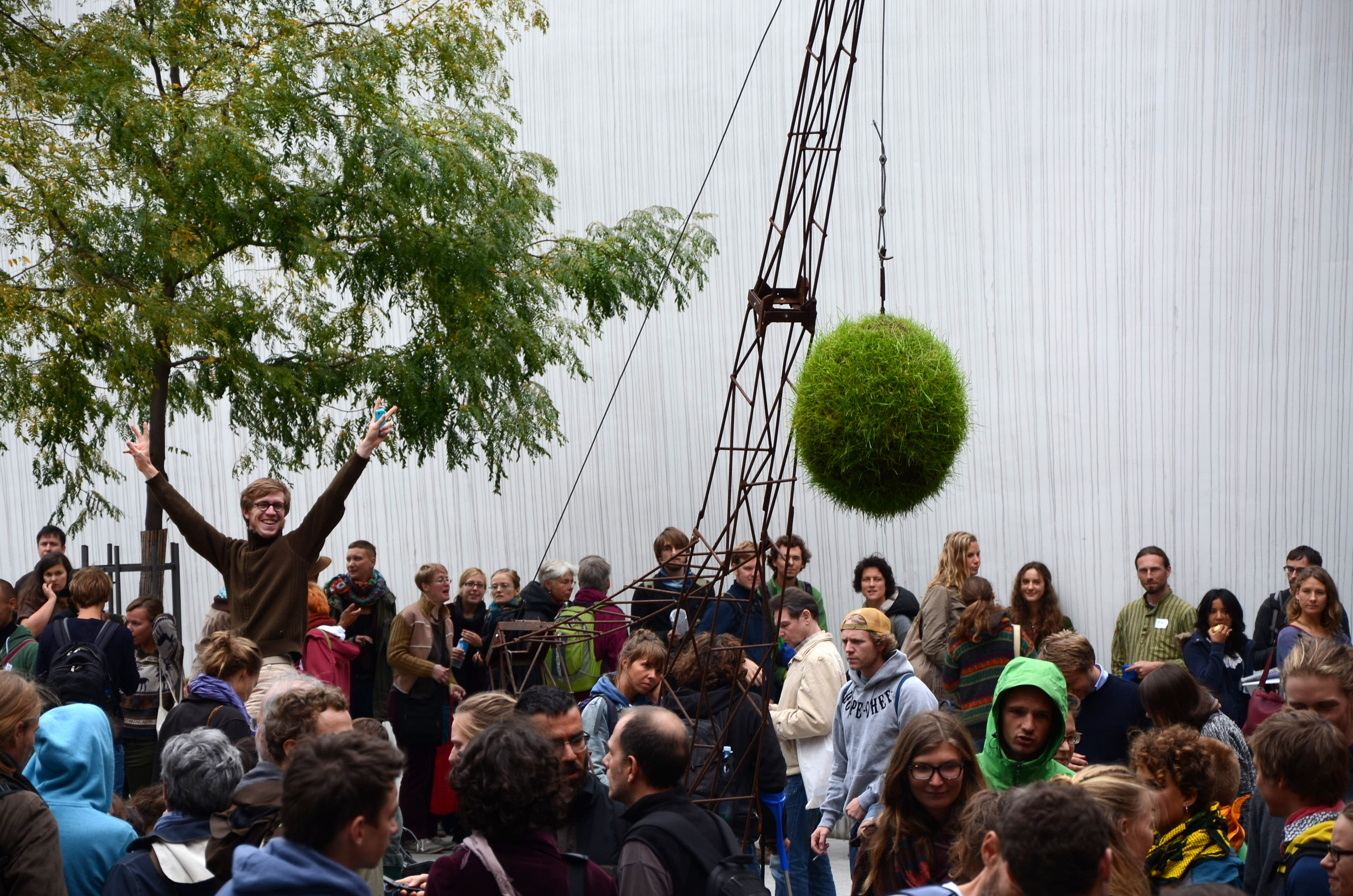Blog • 17.10.2017

How migration relates to the imperial mode of living, degrowth and new internationalism We are currently facing the most severe migration crisis in history. But this is only one dimension of a broader civilizational crisis. Thus, anti-racist movements should not focus solely on issues of human mobility rights, but also build new paths of solidarity with societies in the geopolitical Global Sou...
Blog • 10.10.2017

Linda Schneider reflects on Geoengineering Monitor about a workshop on geoengineering from a degrowth and climate justice perspective at Degrowth Summer School in Rhineland, Germany: http://www.geoengineeringmonitor.org/2017/09/workshop-geoengineering-from-a-degrowth-and-climate-justice-perspective/ Geoengineering Monitor aims to be a timely source for information and critical perspect...
Blog • 09.10.2017

The 6th International Degrowth Conference for Ecological Sustainability and Social Equity will take place in Malmö 21-25 August 2018, with Dialogues in turbulent times as its overarching theme. More information about the conference is available at malmo.degrowth.org. In the spirit of the previous conferences, the organizing committee is inviting three types of contributions: - academic ...
Blog • 07.09.2017
What's harder? Raising 46.000 Euros in short time or at last starting a big debate about the future of a fossil fuel-dependent region? For the organizing team of the Degrowth Summer School, both were great challenges... Christopher Laumanns reports. With a little help from our friends: how we filled a financial open cast mine... Ten days before the start of the Summer School, which took place...
Blog • 22.08.2017

For the third year in a row, the Degrowth Summer School is being held on the Climate Camp in the Rhineland. It runs from the 18th to 23rd of August. Just 10 days before the start of the Summer School the foundation „Stiftung Umwelt und Entwicklung Nordrhein-Westfalen“ has cancelled our funding. The reason they‘ve given us: The Summer School takes place too close to actions of civil disobedience...
Blog • 26.07.2017
We all use models in daily life to explain our environment. An example: I assume that a tree will grow provided it has sufficient water, nutrients and sun. I am using a simple model here, without understanding the nitty-gritty – what exactly happens in the roots, stem, leaves and cells. Thinking in models is not only useful to understand our world, but also to solve problems. Let’s assum...